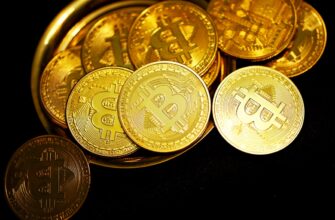## Introduction
Cryptocurrency continues to revolutionize global finance, yet its legal status in Pakistan remains a complex puzzle. With over 9 million crypto users nationwide despite regulatory gray areas, Pakistan ranks among Asia’s fastest-growing digital asset markets. This comprehensive guide examines cryptocurrency’s current legal standing, regulatory developments, practical risks, and future prospects in Pakistan – essential reading for investors and tech enthusiasts navigating this dynamic landscape.
## Current Legal Status of Cryptocurrency in Pakistan
Pakistan maintains an ambiguous stance toward cryptocurrency as of 2024. While not explicitly illegal for individuals, the State Bank of Pakistan (SBP) prohibits financial institutions from processing crypto transactions. Key milestones:
– **2018 Ban**: SBP banned banks from servicing crypto exchanges
– **2021 High Court Case**: Ordered government to regulate crypto within 3 months
– **Ongoing Limbo**: No formal legal framework exists despite parliamentary discussions
Technically, citizens can own cryptocurrencies like Bitcoin, but face banking restrictions and regulatory uncertainty. The Federal Investigation Agency (FIA) actively monitors illegal transactions, creating a high-risk environment for traders.
## Government and Regulatory Developments
Pakistan’s approach has evolved from outright hostility to cautious exploration:
### Key Regulatory Milestones
1. **2019 Crypto Committee**: Formed to study feasibility of regulation
2. **2020 FATF Pressure**: Regulatory improvements demanded to combat money laundering
3. **2021 Sindh High Court Ruling**: Mandated cryptocurrency regulation framework
4. **2023 Draft Legislation**: Proposed digital asset oversight body under Securities and Exchange Commission
Despite these steps, Pakistan missed its December 2023 deadline for comprehensive crypto laws. Recent discussions focus on balancing innovation with concerns about capital flight and terror financing.
## Risks and Challenges in the Pakistani Crypto Market
Navigating cryptocurrency in Pakistan involves significant hazards:
### Primary Concerns
– **Banking Restrictions**: Frozen accounts for crypto-related transactions
– **Scam Vulnerability**: High prevalence of Ponzi schemes targeting inexperienced investors
– **Tax Uncertainty**: No clear guidance on capital gains taxation
– **Security Risks**: Exchange hacks and wallet thefts with limited legal recourse
– **Market Volatility**: 60%+ price swings common in emerging markets
The FIA regularly issues public warnings about crypto investments, emphasizing zero consumer protection in case of fraud or exchange collapses.
## How Pakistanis Can Engage with Cryptocurrency Safely
Despite regulatory challenges, these practices mitigate risks:
### Security Checklist
– Use international exchanges with strong security protocols (e.g., Binance, Coinbase)
– Enable two-factor authentication on all accounts
– Store assets in hardware wallets like Ledger or Trezor
– Verify project legitimacy through multiple sources before investing
– Never share private keys or recovery phrases
P2P platforms like LocalBitcoins remain popular workarounds for banking restrictions, though they carry counterparty risks. Always maintain transaction records for potential future tax compliance.
## The Future of Cryptocurrency in Pakistan
Pakistan’s crypto future hinges on regulatory clarity:
### Potential Developments
– **Central Bank Digital Currency (CBDC)**: SBP exploring “digital rupee” concept
– **Formal Exchange Licensing**: Draft framework for registered crypto platforms
– **AML Integration**: Blockchain analytics to monitor illicit transactions
– **Taxation Structure**: Capital gains tax likely for digital assets
Global pressure from FATF and IMF, combined with Pakistan’s $20B+ freelance IT industry, could accelerate regulation. Neighboring India’s crypto taxation model may influence Pakistan’s approach.
## Frequently Asked Questions
### Is buying Bitcoin legal in Pakistan?
Individuals can technically purchase Bitcoin, but banking channels are restricted. Transactions exist in a regulatory gray zone without explicit legal protection.
### Can I face legal consequences for crypto trading?
While owning crypto isn’t illegal, using banking channels for transactions violates SBP regulations. The FIA has prosecuted cases involving money laundering via cryptocurrencies.
### Will Pakistan ban cryptocurrency completely?
Unlikely. Government committees consistently recommend regulation over prohibition, acknowledging blockchain’s economic potential. A complete ban would contradict 2021 court orders.
### How are crypto profits taxed in Pakistan?
No specific tax framework exists yet. However, the Federal Board of Revenue monitors large transactions and may apply existing income tax laws to crypto gains.
### What’s the safest way to buy cryptocurrency?
Reputable P2P platforms with escrow services offer the most accessible option. Avoid unregulated local exchanges promising unrealistic returns.
## Conclusion
Cryptocurrency operates in Pakistan’s regulatory twilight zone – neither fully legal nor explicitly banned. While technological adoption outpaces legislation, investors must navigate significant risks without institutional safeguards. Ongoing regulatory developments suggest Pakistan may follow global trends toward structured oversight rather than prohibition. Until comprehensive laws emerge, extreme caution and stringent security measures remain essential for Pakistani crypto participants.








